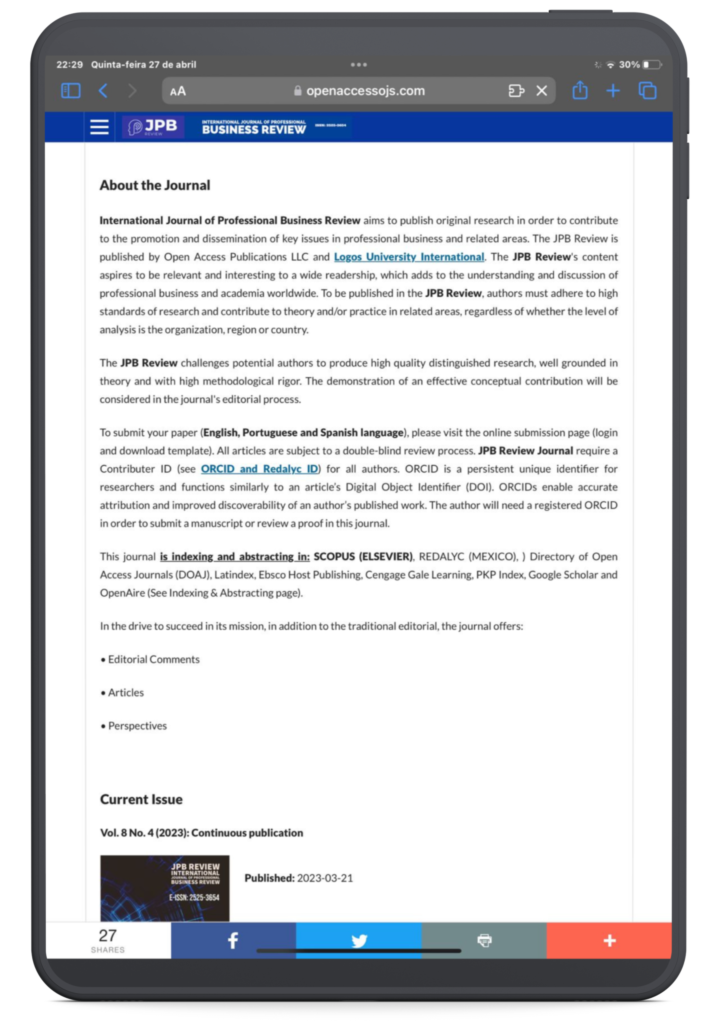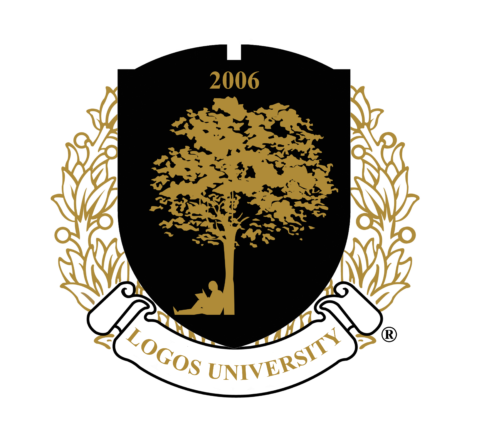Methodology
Methodology
Learning and Active Teaching Method
The entire Unilogos education system is based on Active Education. Instead of simply presenting problems for new solution proposals, in cases involving subjects, as in PBL, we will base our teaching system on the tripod of globalized active education:
Study, Reflection and Production
“The main objective of education is to create people capable of doing new things and not simply repeating what other generations have done.” — Jean Piaget
Based on Piaget, we can understand the need to form, from now on, a mind focused on research, beyond the passive system of study.
The entire study process has 3 bases – Active Methodology
Students must organize their minds in a learning flow that takes them out of the “passive” teaching process, taking on the role of building their intellectual capital:
Study
The study is considered the act, process of studying; implementation of the intelligence to understand something that is unknown or that if you have little knowledge.
In this methodology the student should read the material indicated without the influence of the thought of a teacher or tutor, so that can successfully go to the 2nd methodological pillar.
It is recommended that the student seek to develop his/her self-taught capacity reading diverse opinions on the topic study.
To do this, you must use any type of research that is at your reach.
Reflection
Reflection is considered the action or effect of reflecting, of deviating of the original direction. Meditation, thought or detailed analysis about a subject, about yourself or about some problem or feeling.
Reflection is a fundamental attribute and pillar of this process of knowledge acquisition.
Only with reflection we left the sphere of readers for the sphere of scholars.
For each proposed theme, after the proper study, it is necessary to reflect on opinions and thereby form their own form of understand and expose such an understanding.
Production
Production can be considered the way science is known; is the basis for the development and overcoming of intellectual barriers, the victory of a individual by under the dependence of a thought considered to be formed.
As well as its contribution to the science of countries and regions; is the vehicle for the improving the quality of life of its inhabitants.
Production is not only what is transferred to paper, but also what is one builds on itself, as part of the environment in which one lives and of one wants to be.
This pillar is formed by the sum of the two previous pillars.
In The Curatorship of Knowledge you study, but also produces and in a short time becomes noticed by the scientific community. Its production, its Scientific Articles are published together with experienced researchers and known, in this way you enjoy a whole Professional know-how. No activities in university archives, in our methodology the community and society will know you from near. Your career is important!
In some courses we will use Active Education applying the PBL method, in other cases we work with a methodology based on production with a focus on supervised research.
The entire student evolution process may be published in several scientific journals associated with LUI.
Our teaching method has contributed considerably to the scientific community and demonstrates the formation of a truly critical mind capable of transferring its thoughts and knowledge to paper, eternalizing and expanding knowledge.
The vast majority of our courses have research seminars and the presentation of works / lectures focused on exposing criticism and possible solutions to social, humanitarian, scientific and dogmatic problems.
LUI’s masters and doctors are prepared to work with a 360º vision, proposing solutions based on effectiveness and efficiency in their technical-professional processes.
Even having standardized pedagogical projects, our methodology aims to encourage the role of teaching in a multi and interdisciplinary way.
Educational Intelligence is our goal!
Our Methodology and Current Challenges
One of the biggest challenges of a Teaching Academy is to create mechanisms that aim to prevent the mechanization of teaching, transforming it into true learning.
When we talk about learning we are referring to the search for autonomy in the construction of knowledge. It is true that the passive model of teaching with classes no longer brings the expected results for a long time.
Completely adopting the methodologies that are applied in other schools (culture, society and education) is always very complex, since the way of learning differs from people to people.
“With our methodology, the researcher constructs his own subjectivities and conceptions of knowledge with criticality”
(PROF. DR. EDUARDO FOFONCA)
Escola da Ponte (Portugal) is an example of changing this paradigm and an excellent incentive to change our way of seeing methodology.
With teaching based on encouraging autonomy, Escola da Ponte does not divide students into grades or classes. There, they form groups according to their interests to develop projects. Each student goes through three cores as he becomes more autonomous: initiation, consolidation and deepening. While in the first level each student requires more tutoring, in the last one he manages his own activities. The course system is also different. Traditional subjects give way to dimensions: linguistic, logical-mathematical, naturalistic, identity, artistic and personal and social. The aim of the course is to provide Brazilians with the opportunity to better understand how the alternative methodologies of Escola da Ponte work and to encourage that some strategies be adapted to the Brazilian context.
One of the greatest authorities on this subject is called Dr. José Pacheco, he attended one of our seminars. We do not completely apply the “bridge” methodology, but use a hybrid methodology called “knowledge curation”, which is similar to the search for autonomy and the construction of criticality, so necessary for the training of new professionals.
The term Knowledge Curation was mentioned and theorized by Prof. Dr. Eduardo Fofonca.
Prof. Eduardo is a highly regarded post doctor who has been revolutionizing active education and the production of new content.
“In the same way, it is observed that knowledge curation can become an effective way, in the sense of a space-time literacy of digital culture, considering that through it, researchers are allowed to select contributions linked, intrinsically to the teaching practice. It can be said that the relationship between research practice and teaching practice allows us to build increasingly objective knowledge with regard to the readings of the realities that are raised by teaching narratives, as they are articulated with professional practice and teaching training in the context of Basic Education and Higher Education. In this sense, Fofonca and Camas (2019) highlight the development of research on knowledge curation, in the training of researchers working in Basic Education, who end up establishing specific links between educational research that, until then, had academic purposes, contextual objects and, assertively, critics of the educational reality. It should be noted, therefore, that educational scientific research, outlined in the dimensions of knowledge curation, can produce new meanings for what has already been said or worked on in some way, but that sometimes, it was far from reality for there to be the proper meaning. , proper understanding. (FOFONCA)”
Reference: FOFONCA, E. FISCHER, M. The Curation of Knowledge in EaD: challenges and new perspectives of online research and methodology in teacher education. In. Distance Education and Digital Technologies. Curitiba: Editora Prismas, 2017.
Gossip, E., & Camas, N. P. V. (1). The curatorship of knowledge in immersive environments and the training processes of basic education teachers with innovative methodologies. INTERSABERES MAGAZINE, 14(31), 7-19. https://doi.org/10.22169/ri.v14i31.1596
“Aula is a 19th century pedagogical device that no longer makes sense today. The training we have belongs to the instruction paradigm, when we should be guided by the learning paradigm and even the communication paradigm. Instead of classes, we should have workshops, study circles, training projects, gatherings… why not?” (PACHECO)
Consolidated production - Quality surveys
Article Title: Advertising and Marketing in companies, school libraries and institutional libraries: the underestimation and underutilization of marketing, digital marketing and neuromarketing in libraries
Journal: GeSec – Management and Secretariat Magazine | Brazil | e-ISSN: 2178-9010
Index: Web of Science™ Core Collection, REDIB – Red Iberoamericana de Innovación y Conocimiento Científico, Diadorim – Directório de Políticas Editorials das Revistas Científicas Brasileiras, DOAJ Directory of Open Access Journals, EBSCO Host Publishing, e-Revit@s, SPELL (ANPAD ), Proquest central, Ulrich’s Periodicals Directory, NewJour – Electronic Journals and Newsletter, Academic Journals Database, WZB – Berlin Social Science Center, ZDB: Zeitschriftendatenbank, Genamics Journal Seek, Electronic Journals Library, OCLC WorldCat, Latindex, ResearchBib, Bielefeld Academic Search Engine , EuroPub, Google Scholar.
In addition to all the aforementioned Indexes, the Journal is also evaluated by the Federal Government of Brazil, through the Qualis Capes Quality system, obtaining an A4 grade, among the highest indices of relevance, quality and impact.
Publications and main quality assessment Scopus Index
International Journal of Professional Business Review aims to publish original research in order to contribute to the promotion and dissemination of key issues in professional business and related areas. The JPB Review is published by Open Access Publications LLC and Logos University International. The JPB Review‘s content aspires to be relevant and interesting to a wide readership, which adds to the understanding and discussion of professional business and academia worldwide. To be published in the JPB Review, authors must adhere to high standards of research and contribute to theory and/or practice in related areas, regardless of whether the level of analysis is the organization, region or country.
The JPB Review challenges potential authors to produce high quality distinguished research, well grounded in theory and with high methodological rigor. The demonstration of an effective conceptual contribution will be considered in the journal’s editorial process.
To submit your paper (English, Portuguese and Spanish language), please visit the online submission page (login and download template). All articles are subject to a double-blind review process. JPB Review Journal require a Contributer ID (see ORCID and Redalyc ID) for all authors. ORCID is a persistent unique identifier for researchers and functions similarly to an article’s Digital Object Identifier (DOI). ORCIDs enable accurate attribution and improved discoverability of an author’s published work. The author will need a registered ORCID in order to submit a manuscript or review a proof in this journal.
This journal is indexing and abstracting in: SCOPUS (ELSEVIER), REDALYC (MEXICO), ) Directory of Open Access Journals (DOAJ), Latindex, Ebsco Host Publishing, Cengage Gale Learning, PKP Index, Google Scholar and OpenAire (See Indexing & Abstracting page).


There are three major databases in the world: The Web of Science (WoS), from the company Clarivate Analytics, Scopus (Elsevier), and Dimensions, from Digital Science, collect, store and make available information from thousands of journals, millions of publications and researchers and billions of citations.
Logos University International, UniLogos has publications by its researchers and students in over 105 leading scientific journals. The most relevant publications are present in journals with WoS, Scopus and Dimensions. In addition to these important indexes, we have articles published in newspapers rated with the highest index by the Brazilian Ministry of Education.
Our methodology has the mission of preparing researchers and professionals to confront reality, the real world.


